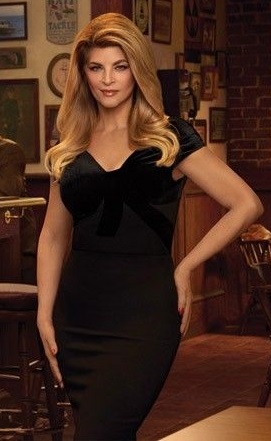Married… With Children
This show was never supposed to be popular, with its unrelievedly hostile approach to the subject matter. And yet it was, enormously so, perhaps as an antidote to all the saccharine TV families that had gone before, with their wise mothers, irascible yet good-natured fathers and spunky but lovable children. Instead, we got Ed Neil’s snarling loser father, Al Bundy, his slatternly non-housewife partner Peg (Katey Sagal), with snarky sex-starved son Bud (David Faustino) and the slutty daughter Kelly (Christine Applegate). When I first watched this show, I spent much of the time helpless with open-jawed laughter, and it became one of the very few TV shows I looked forward to each week. And while I loved the buxom Peg, I have to admit that young Kelly Bundy turned me into a Dirty Old Man every time she flounced onto the screen. I don’t think that I’m alone in this, either.










